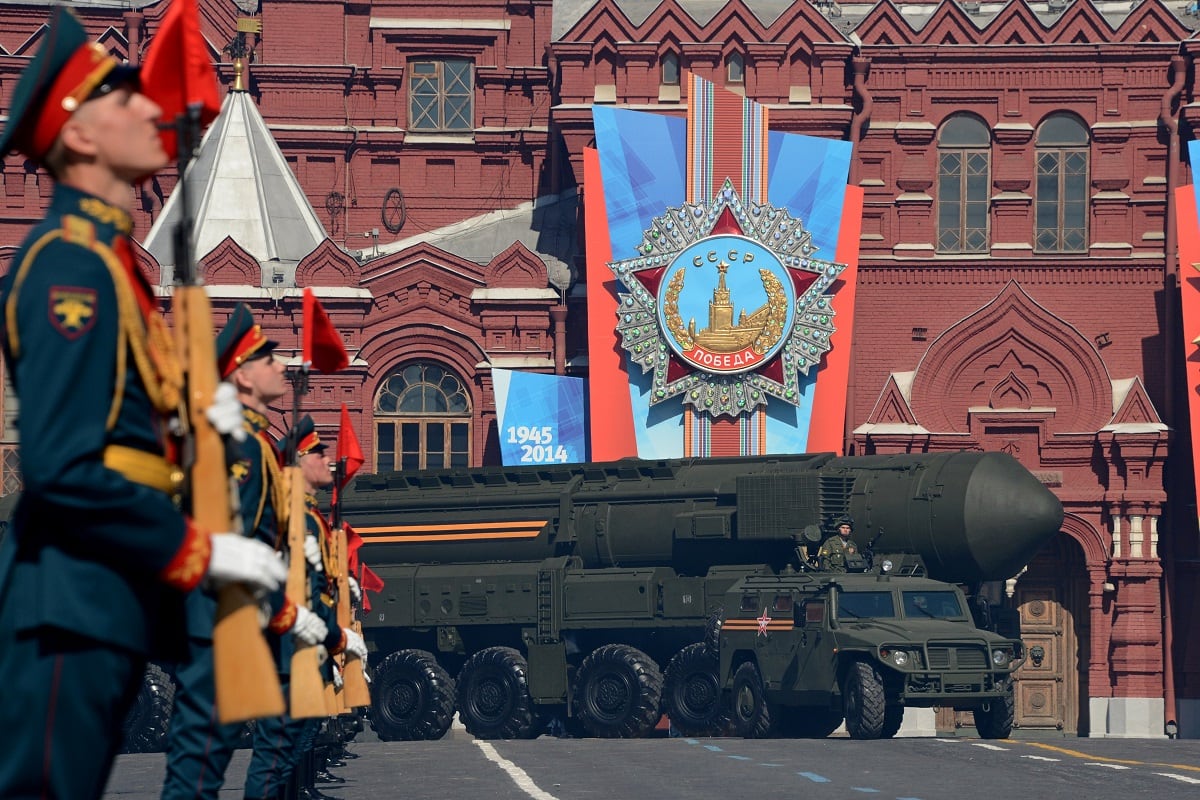WASHINGTON — A top American official today does not expect Russia will meet the demands of the Trump administration before a Feb. 2 deadline, when America will begin withdrawal from the Intermediate-Range Nuclear Forces treaty.
Asked if she was optimistic Russia would meet the U.S. deadline, Andrea Thompson, undersecretary of state for arms control and international security, was blunt: “I’m not.”
The INF Treaty, signed between the U.S. and Russia in 1987, bans all land-based cruise missiles with a range between 500 and 5,500 kilometers. While the Obama administration had accused Moscow of violating the agreement by deploying such systems, most notably with the Novator 9M729 design, Pentagon officials, including former Secretary of Defense Jim Mattis, have been more vocal under the Trump administration about their concerns.
In December, Secretary of State Mike Pompeo announced the U.S. would set a 60-day timer for Russia to come back under compliance in the eyes of the Trump administration. If Russia does not do that, Pompeo pledged, the U.S. would begin the process of withdrawing fully from the treaty.
Last week, Thompson made a trip to Geneva to meet with Russian negotiators, but left without any change in agreement despite what she said today were “professional” talks between her team and that of Russia’s deputy foreign minister Sergei Ryabkov.
RELATED

“It wasn’t the normal bluster, propaganda, the kind of dramatics that [often] associate some of these meetings. The deputy foreign minister did have the right people in the room, as did we. But as I said before, we didn’t break any new ground. There was no new information. The Russians acknowledged having the system but continued to say in their talking points it didn’t violate the INF treaty despite showing them, repeated times, the intelligence and information” gathered by the U.S. and its allies, Thompson said at a Defense Writer’s Group breakfast.
On Wednesday, Russia held a media engagement where they showed off the Novator 9M729, making the case that the system is not in violation of the treaty as it can only travel 480 kilometers, just under the INF limit. Thompson, however, compared that to someone pointing to their car and telling you to figure out how fast it can go without being able to drive it.
“Arms control works when you can fully verify the compliance with it. The transparency measures they brought to the table wouldn’t have done so,” Thompson said.
Jon Wolfsthal, who served as senior director for arms control and nonproliferation at the U.S. National Security Council from 2014 to 2017, points to the public display from Russia as a sign that American pressure is working.
“Releasing classified information and ensuring NATO allies support US efforts have been effective," he said. "Russia has blinked and offered both serious talks and to display the offending 9M729 missile.”
As a result, he urged the administration not to give up on negotiations now by triggering the INF exit.
“Refusing to engage seriously now and pursue this opening would risk all that the Trump team has gained. If the U.S. does not postpone INF Treaty withdrawal and engage with Russia, NATO unity would be shattered and Russia can convincingly claim they went above and beyond to save the Treaty and the U.S. was not interested,” he said.
“There are viable technical ways to address Russia’s INF violation and to give Russia a face-saving way out of this problem by giving them confidence US missile defenses in Europe won’t be equipped with offensive missiles. The solution is there for the taking. It is not clear the Trump admin wants to solve this problem.”
Thompson, for her part, indicated the U.S. has talked with Russia enough on this issue, going back to the Obama administration, and that new steps need to be taken.
“The act of fielding a system that violates the treaty, brought the demise of the treaty or the failure of the treaty,” she said. “To not acknowledge it, and to continue to allow it, I think is an action that undermines arms control. You are now accepting a new norm and setting a precedent for new treaties – ‘I’ll sign a treaty with you but go ahead and violate it, field the system.’”
If nothing dramatic happens, the U.S. will on Feb. 2 officially declare its intention to leave the INF agreement. It will then have a six month period where it ends its obligations. During that period, Thompson said, the U.S. is open to negotiations with Russia continuing and, if the Putin government changes its stance and agrees to destroy the 9M729 system, the U.S. would be willing to keep the INF agreement alive.
But once again, Thompson didn’t sound optimistic.
“We continue to provide them with that information. They continue to deny it,” she said. “Maybe the 50th time will be the charm.”
Aaron Mehta was deputy editor and senior Pentagon correspondent for Defense News, covering policy, strategy and acquisition at the highest levels of the Defense Department and its international partners.






